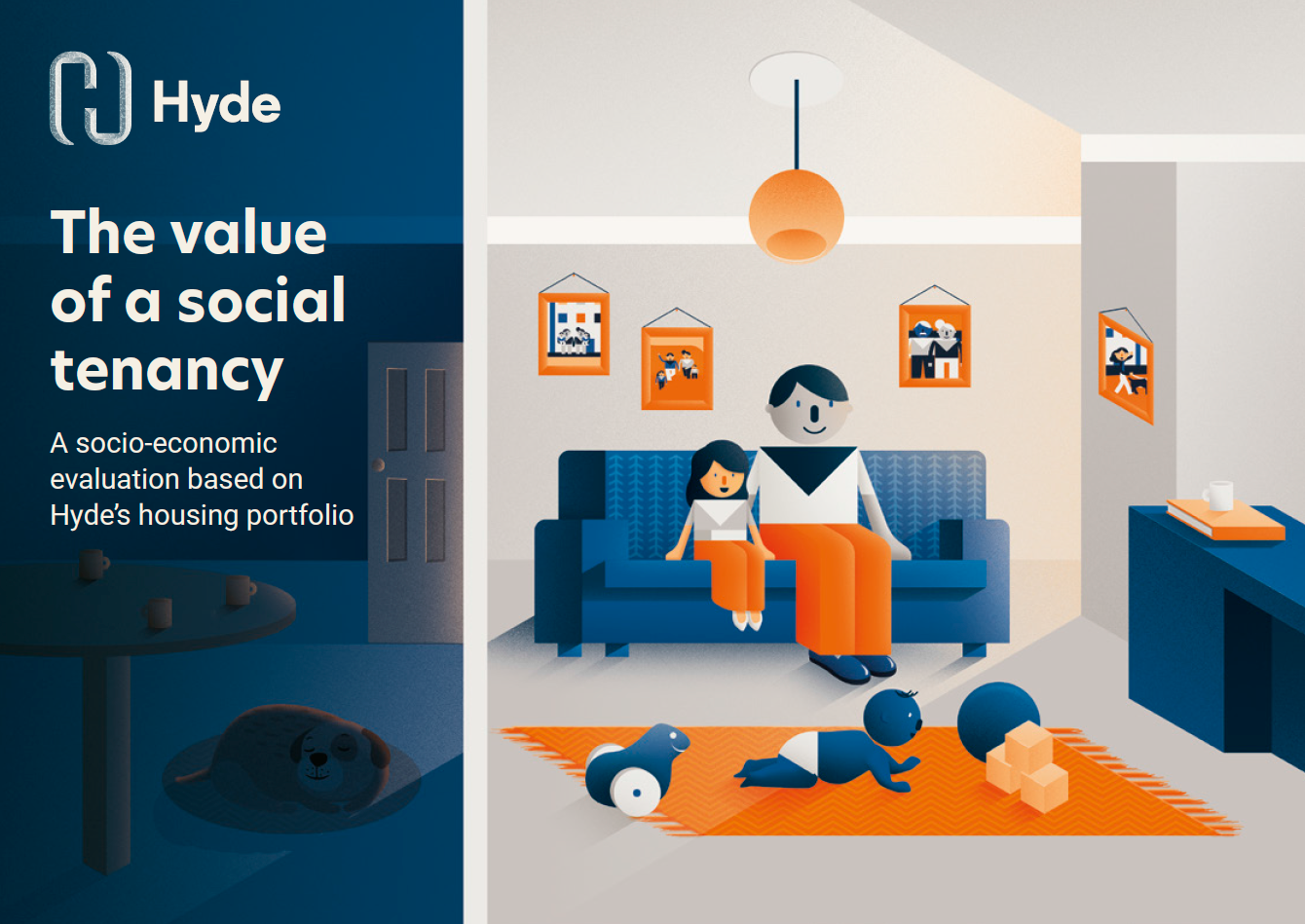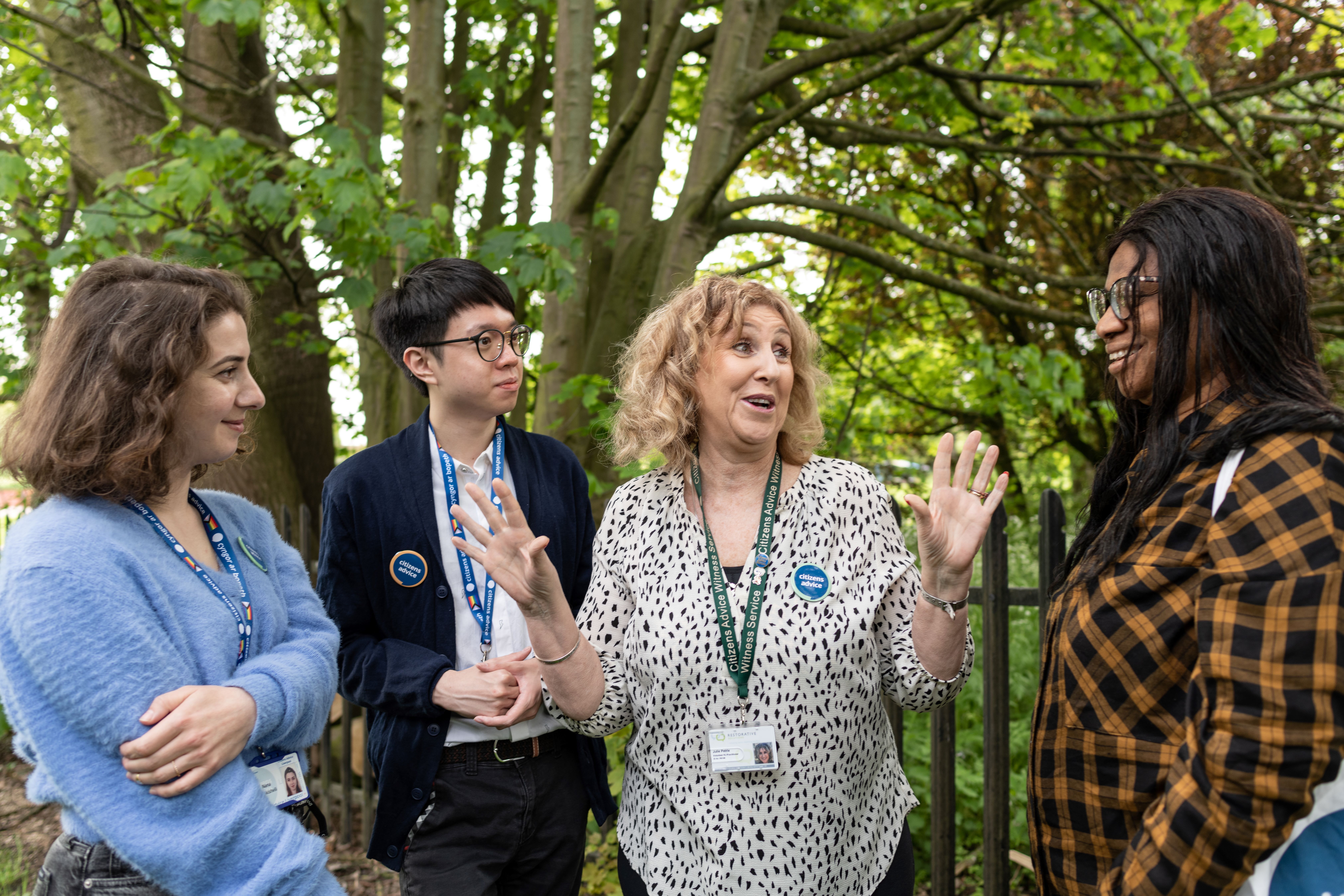
The Sonnet team (formerly Bates Wells’ A&I) authored a ground-breaking report for Hyde Group in 2018 which revealed findings of significant interest to the social housing sector, central government and local authorities.
The report, entitled “The Value of a Social Tenancy”, shows clearly that social tenancies which are well-run and well-managed help save millions of taxpayers pounds in other areas of crucial importance to society, including education, policing and overall local authority expenditure.
The research conducted by our A&I team (and independently assured by PwC) shows that Hyde’s social tenancies:
Save the NHS £93m by reducing the number of GP and A&E visits; decreasing the number of falls for older residents; fewer cases of childhood asthma; less drug and alcohol dependency and improved mental health;
Save local authorities £52m by tackling the need for temporary accommodation; helping older people live independently for longer and reducing the number of children on the Child Protection Register;
Save the DWP £14m through reductions in Universal Credit claims as people re-enter employment;
Save the education system £10m by helping more children attend school;
Add £172m to the economy through additional economic productivity and because social tenancies enable more people to get back into work;
Save the police and criminal justice system £55m through fewer call-outs and reduced costs relating to victims of crime.
Our A&I team adopted a wide array of methods during the research process. These included workshops with Hyde’s workforce and residents; in-depth interviews with staff, residents, police and local authorities; thorough analysis of Hyde’s own data and data collection from a wide variety of other recently-published studies across the sector.
Other key conclusions reached as a result of this research show that:
- Hyde’s properties generate at least £11,175 per annum;
- The economic benefits of the Hyde Group’s house building programme contributes at least £4,586 per tenancy to the economy;
- It is estimated that if social housing did not exist, 45% of Hyde’s tenants would end up relying on the goodwill of other individuals. Aside from this finding, the research indicated that 22% of these tenants would need to resort to temporary accommodation and 33% to low cost private rental.
Jim Clifford OBE and Katie Barnes of Sonnet, who authored the report, commented:
“The findings show that social tenancies deliver much more than roofs over heads. They create communities of support, and the stability of situation from which people can change their lives. This delivers not just measurable savings in public service costs, but real economic improvement in the workplace, and in local area economic activity. Indeed the annual economic return on a single social tenancy, at over ten per cent of build cost, would arguably stand up well against many market investments”.
If you’d like to read an overview of the report’s findings, and the methodology which revealed the above conclusions, click here.
To access the full report, click here. For a summary of how we modelled and calculated the values, click here for the reporting criteria. To access the 2018/19 updated version click here.
Visit Hyde’s website for case studies and additional resources around the report.






